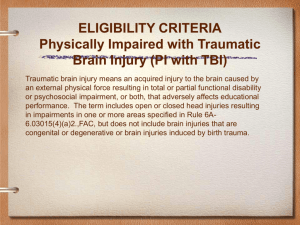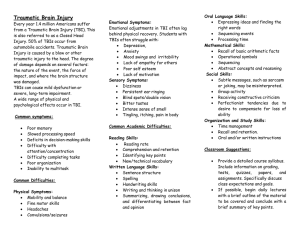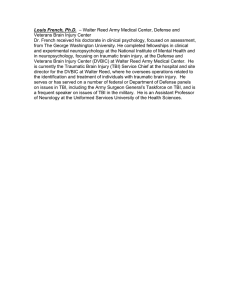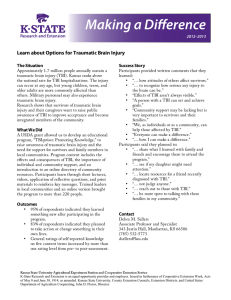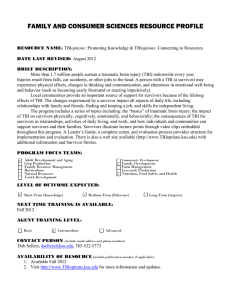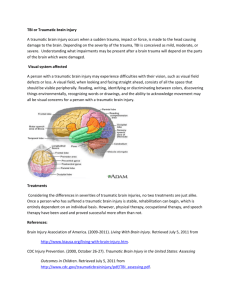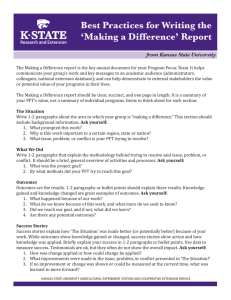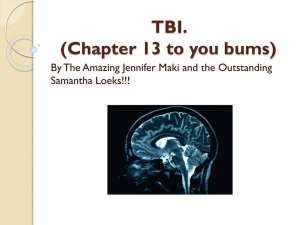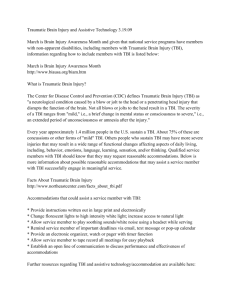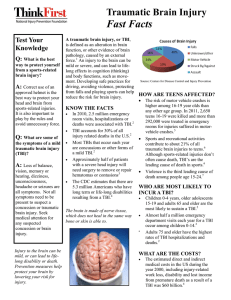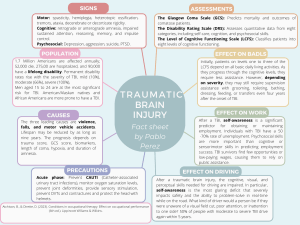DEFINITION
advertisement
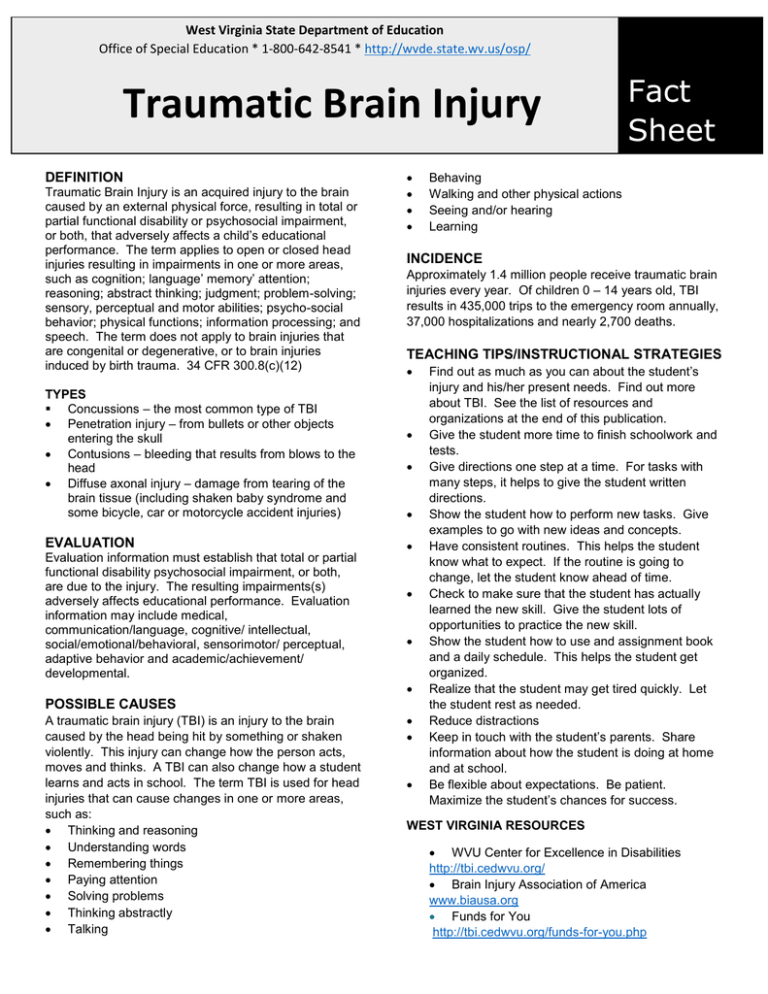
West Virginia State Department of Education Office of Special Education * 1-800-642-8541 * http://wvde.state.wv.us/osp/ Traumatic Brain Injury DEFINITION Traumatic Brain Injury is an acquired injury to the brain caused by an external physical force, resulting in total or partial functional disability or psychosocial impairment, or both, that adversely affects a child’s educational performance. The term applies to open or closed head injuries resulting in impairments in one or more areas, such as cognition; language’ memory’ attention; reasoning; abstract thinking; judgment; problem-solving; sensory, perceptual and motor abilities; psycho-social behavior; physical functions; information processing; and speech. The term does not apply to brain injuries that are congenital or degenerative, or to brain injuries induced by birth trauma. 34 CFR 300.8(c)(12) TYPES Concussions – the most common type of TBI Penetration injury – from bullets or other objects entering the skull Contusions – bleeding that results from blows to the head Diffuse axonal injury – damage from tearing of the brain tissue (including shaken baby syndrome and some bicycle, car or motorcycle accident injuries) EVALUATION Evaluation information must establish that total or partial functional disability psychosocial impairment, or both, are due to the injury. The resulting impairments(s) adversely affects educational performance. Evaluation information may include medical, communication/language, cognitive/ intellectual, social/emotional/behavioral, sensorimotor/ perceptual, adaptive behavior and academic/achievement/ developmental. Behaving Walking and other physical actions Seeing and/or hearing Learning INCIDENCE Approximately 1.4 million people receive traumatic brain injuries every year. Of children 0 – 14 years old, TBI results in 435,000 trips to the emergency room annually, 37,000 hospitalizations and nearly 2,700 deaths. TEACHING TIPS/INSTRUCTIONAL STRATEGIES POSSIBLE CAUSES A traumatic brain injury (TBI) is an injury to the brain caused by the head being hit by something or shaken violently. This injury can change how the person acts, moves and thinks. A TBI can also change how a student learns and acts in school. The term TBI is used for head injuries that can cause changes in one or more areas, such as: Thinking and reasoning Understanding words Remembering things Paying attention Solving problems Thinking abstractly Talking Fact Sheet Find out as much as you can about the student’s injury and his/her present needs. Find out more about TBI. See the list of resources and organizations at the end of this publication. Give the student more time to finish schoolwork and tests. Give directions one step at a time. For tasks with many steps, it helps to give the student written directions. Show the student how to perform new tasks. Give examples to go with new ideas and concepts. Have consistent routines. This helps the student know what to expect. If the routine is going to change, let the student know ahead of time. Check to make sure that the student has actually learned the new skill. Give the student lots of opportunities to practice the new skill. Show the student how to use and assignment book and a daily schedule. This helps the student get organized. Realize that the student may get tired quickly. Let the student rest as needed. Reduce distractions Keep in touch with the student’s parents. Share information about how the student is doing at home and at school. Be flexible about expectations. Be patient. Maximize the student’s chances for success. WEST VIRGINIA RESOURCES WVU Center for Excellence in Disabilities http://tbi.cedwvu.org/ Brain Injury Association of America www.biausa.org Funds for You http://tbi.cedwvu.org/funds-for-you.php
